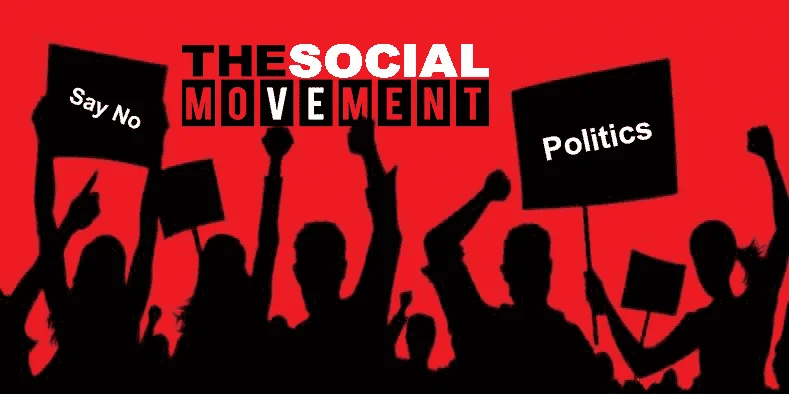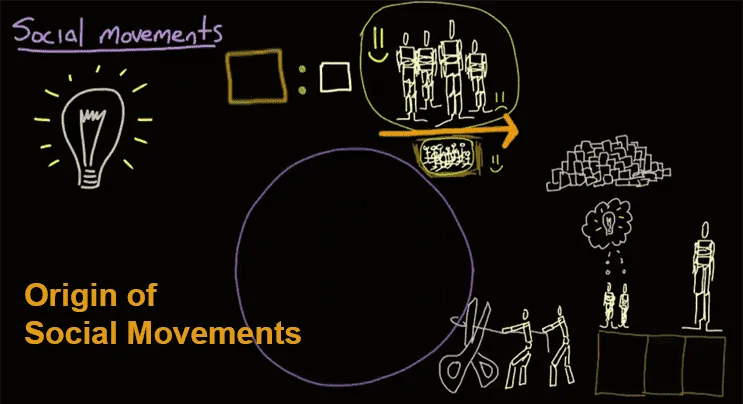Social Movement Definition, & Types of Social Movements.

Social Movements defined as a collectivity acting with some continuity to promote or resist a change in the society or group of which it is a part. Thus, a social movement is the effort by an association to bring about a change in the society.
A social movement may also be directed to resist a change. A distinguishing feature of social movement is that it should be sustained and not sporadic.
It is different from an institutionalized movement such as trade unions, cooperatives etc. which has a fixed structure and a hierarchy. Sustained action and spontaneity distinguish social movements from other movements.
Also read | Approaches to the Study Urban Sociology.
The Naxalite Movement which began in 1968 in the Darjeeling district of West Bengal is regarded as a social movement.
The peasants and agricultural workers rose in violent struggle against their exploiters. The movement spread to other parts of the country but was declared illegal.
In 1978, the ban was removed with the condition of eliminating violence and several Naxalites declared themselves as political parties. It then ceased to be a social movement.
In the cultural field, there have been social movements such as the new cinema or parallel cinema in the 1960s.
There were films which were realistic, and dealt with common situations of everyday life. SNDP Movement, a backward class movement in the 19th century’s Kerala has social, political, educational, religious dimensions to it.
Also read | Subject Matter and Scope of Urban Sociology.
TYPES OF SOCIAL MOVEMENTS.
Migratory Movement:
Migratory movements take place when a large number of people leave one country and settle at some other place. Mere migration of people does not mean migratory movement.
There is a migratory social movement only when there is a common focus of discontent, a shared purpose or hope for the future and a widely shared decision to move to a new location.
The Zionist Movement, the Movement of Jews to Israel was a migratory social movement.
Also read | The Legacy of the Coorgs.
Reform Movements:
The reform movement is an attempt to modify some parts of the society without completely transforming it.
Reform movements can operate only in a democratic society where people have freedom to criticize the existing institutions and may secure changes.
The movements to abolish untouchability, dowry system, preserve wild life, control population growth are reform movements. The total revolution movements led by J. P. Narayan was a reform movement.
Also read | Scheduled Tribes in India.
Revolutionary Movement:
The revolutionary movement seeks to overthrow the existing social system and replace it with a greatly different one.
The reform movement wants to correct some imperfections in the existing social system. But a evolutionary movement wants to root out the system itself.
Revolutionary movement flourish where reform is blocked so that revolution remains the people’s only alternative to their present misery. The Communist movements in Soviet Russia and China were revolutionary movements.
Also read | The Sikh Social Organization.
Resistance Movements:
This is an effort to block a proposed change or to uproot a change already achieved.
The revolutionary movement arises because people are dissatisfied with the slow rate of social change whereas resistance movement arises because people consider social change too fast. The DMK movement against Hindi can be termed resistance movement.



